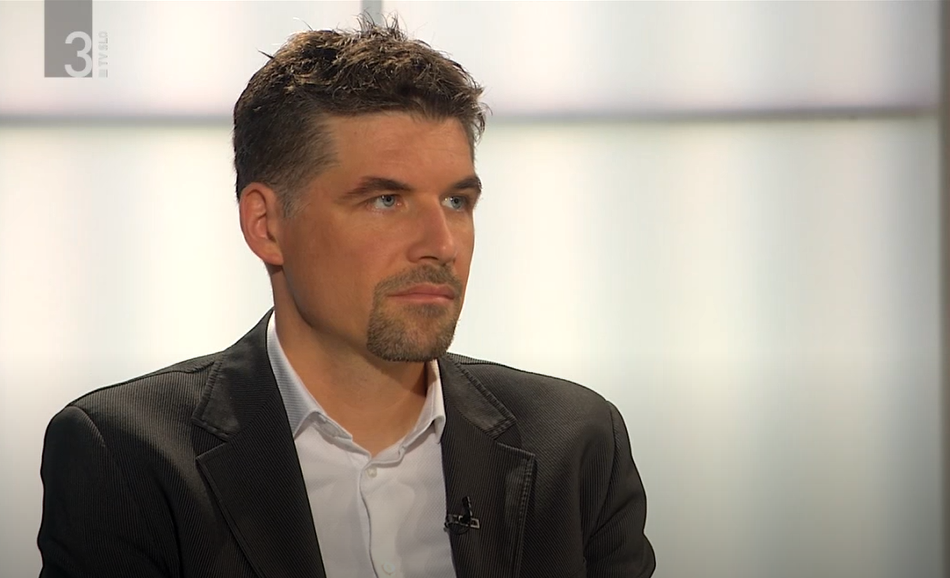By: Tanja Brkić (Nova24tv.si)
“The aim of ZRTVS-1B is therefore a political purge, carried out by abusing the legislative process and contrary to numerous other elements of the rule of law,” stated the initiators of the constitutional review initiative in their complaint sent to the European Court of Human Rights. The Constitutional Court did not protect the rights of individuals but rather safeguarded the legislative authority, raising the question of effective protection of human rights.
The initiator of the constitutional review of the law, Peter Gregorčič, the current President of the Programming Council, and the author of the initiative, Matej Avbelj, have announced that they have prepared a complaint and submitted it to the European Court of Human Rights. They argue that all available legal remedies in Slovenia have been exhausted.
“In the complaint, we allege a violation of the right to a fair trial under Article 6(1) of the Convention. We substantiate the violations of the Convention by the fact that the Constitutional Court, by revoking the temporary suspension, deprived the applicants of the only legal remedy, an integral part of which, in accordance with the established case law of the European Court of Human Rights, is the temporary suspension of the contested regulation. We also argue that with this decision, the Constitutional Court protected the state authority against individuals, which is fundamentally contrary to the core idea of protecting human rights. The essence of the separation of powers is to protect individuals against abuses of power, rather than having the authorities act uniformly against individuals,” is stated in the complaint.
After providing a comprehensive presentation of their arguments, they referred to examples from other countries, based on which “the KZS RS was therefore obliged to provide the applicants with an effective legal remedy within a reasonable time against the ex lege interference of the legislator in their rights protected by the Slovenian Constitution, the ECHR, and the EU”.
Lifting of the temporary suspension represents a “dangerous precedent”
According to their statements, the lifting of the temporary suspension represents a “dangerous precedent in the European legal space, as the court lifted the suspension without protecting the legal position of the applicants in any way”. They further state that their right to make statements, “which is part of the right to a fair trial”, was taken away from them. “Although we explicitly requested the court to allow us to comment on the changed circumstances in the event of the suspension being revoked, the court did not mention this request in the summary of the parties’ submissions. The request was simply overlooked.” According to their statements, the Constitutional Court protected the legislator, i.e., the state, against individuals “who, in accordance with human rights law, can be the only bearers of human rights. This stance raises an important question of whether human rights in Slovenia are still effectively protected”. Avbelj and Gregorčič then touched upon the sessions of the constitutional judges. “In the justification of its decision, the Constitutional Court stated that it had so far dealt with the case in ten non-public sessions, also considering several different draft substantive decisions on the matter that were formulated in different directions. However, despite efforts, none of the substantive decisions obtained the required support of five judges.”
All available legal remedies have been exhausted
They state that the Constitutional Court “openly acknowledged that it has reached a position where it can no longer assess when it will be able to make a final substantive decision in the case at hand. It ruled that ‘it cannot be excluded that such a situation may change only with (the first or subsequent) changes in the composition of the Constitutional Court judges’. Since the Court took a clear position in its decision that ‘it cannot fulfil its constitutional role in a reasonable time in accordance with the principle of effective judicial protection,’ this undoubtedly means that all available legal remedies in Slovenia have been exhausted with the issuance of this decision”.
The decision of the Constitutional Court is expected to be published in the Official Gazette today, and the council must be constituted within seven days after its publication. The General Director of RTVS, Andrej Grah Whatmough, could convene a meeting of the new council this week, while the amendment stipulates that the RTVS council must publish a public call for the president and members of the management board no later than 15 days after its constitution.

